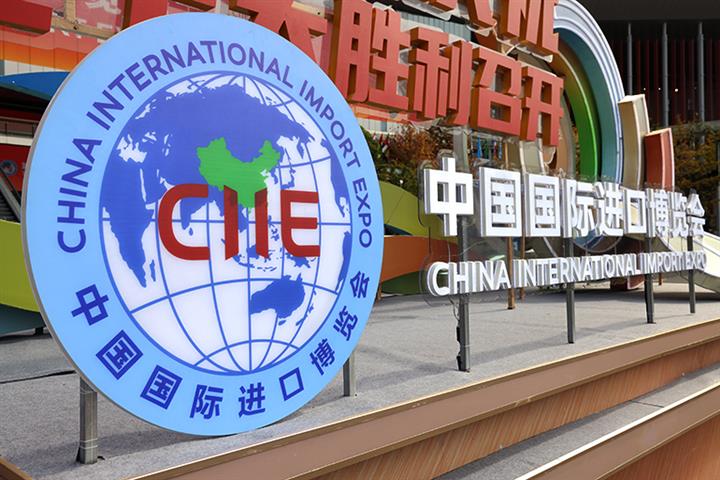 More Overseas Firms take CIIE as a Launching Pad to Enter China After RCEP Deal Takes Effect
More Overseas Firms take CIIE as a Launching Pad to Enter China After RCEP Deal Takes Effect(Yicai Global) Nov. 8 -- With the implementation of the Regional Comprehensive Economic Partnership Free Trade Agreement, this year's China International Import Expo has become an important launching pad for more foreign companies to enter the Chinese market.
Over 172 Japanese sake brands exhibited their products at the sake testing area in the 'Japan Mall' at the CIIE this year, versus 70 brands last year, showing the positive impact of the RCEP agreement, said Kenji Mizuta, chief representative of the Japan External Trade Organization Shanghai Office.
The RCEP deal is the first bilateral tariff concession agreement between China and Japan. Chinese import fees for Japanese scallops, sake, and shochu products will drop year by year and eventually to reach zero.
The customs duty for Japanese sake brands entering China was as much as 40 percent, but with the RCEP deal into effect, they will gradually decrease to zero, allowing sake brands to grasp all opportunities of exporting to the Chinese market, Mizuta added.
To set a platform for agriculture products from the RECP member nations, the food and agricultural products section of the CIIE has a special RCEP regional green agro-industry sub-section this year.
The RCEP agreement allowed tax benefits between member countries and accelerated trade advancements which have a significant impact on Dole's business, Wang Na, marketing director of the Chinese branch of the fresh fruit and vegetable producer.
"The access of fresh food products from RECP countries to the Chinese market has been accelerated nowadays," Wang added. "For example, Vietnamese durian, Indonesian pineapples, and Burmese bananas have already been approved to enter China this year, while Philippine durian is expected to be the next in line."
New Zealand's Fonterra is happy to see more dairy companies entering China driven by the RCEP mechanism, Bo Shuangyu, vice president of Fonterra Co-Operative Group China, who attended the CIIE for the fifth straight year, told Yicai Global. The firm will work with newcomers to improve the Chinese dairy market, Bo noted.
Commodities from RCEP member countries, especially Japan, will benefit from the reduction of trade tariffs, and manufacturers and distributors from there will be more active during the CIIE to increase export volume to China, said Zhou Liang, partner of the Government and Public Affairs Department of Ernst & Young (China) Advisory, adding that companies can also make better use of the rules of origin of the RCEP to adjust their industrial layout.
Furthermore, as the RCEP deal came into effect, the CIIE will further develop from a platform connecting Chinese and overseas companies into one connecting the Asia-Pacific region with the rest of the world, bring more opportunities for professional service providers and design, education, and training institutions, and help more foreign players in the Chinese financial and telecoms sectors, said Zhou Liang.
Editors: Tang Shihua, Futura Costaglione